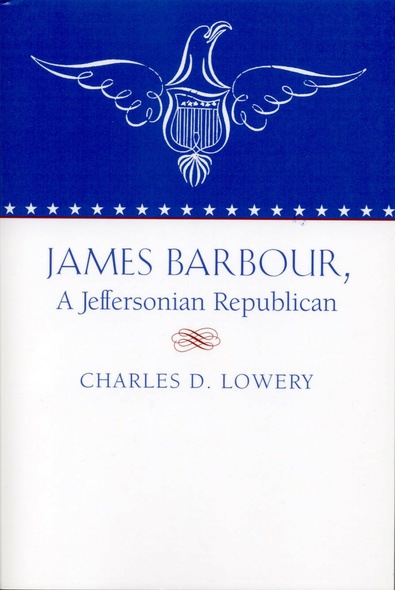Barbour, a Virginia contemporary of Thomas Jefferson and James Madison, during a long public career spanning the years 1798-1842, exerted a constructive influence on the nation’s history. Active in state and national politics during the formative decades of the republic, Barbour was a political nationalist who grafted to the dominant political philosophy of the day those elements of the Hamiltonian Federalist creed necessary for governing a dynamic, changing nation.
Barbour’s life affords a unique vantage point for viewing party politics in the South and the nation during the Jeffersonian and Jacksonian periods, for understanding Jeffersonian Republicanism, and for comprehending the difficulties a Southern agrarian had in embracing the economic and political realities at the dawn of the modern commercial age.
Absolutely first-rate. An outstanding biography of an important early-national politician. Lowery’s scholarship is most impressively thorough, and this solid scholarship is matche by quite uncommon skills as a literary and biographical craftsman. An attractive, readable biography. It does James Barbour justice.’
– Lance Banning, University of Kentucky
Charles D. Lowery is associate dean of Arts and Sciences, Mississippi State University, Starkville.






